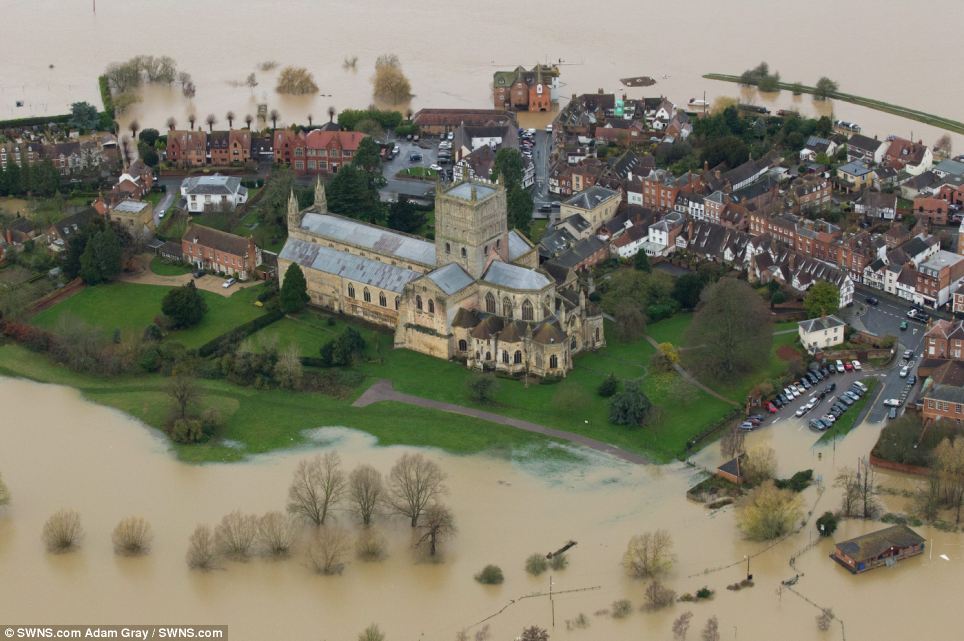
30 October 2017
Flood – The risk and how insurance will respond
Many of Britain's business owners have witnessed the devastating effects of flooding. The need for adequate insurance cover and business continuity planning has never been more apparent.
Insurance can be arranged to cover both the physical damage to your property and your business's loss of income as a result of certain specified incidents. Check your business insurance policy to ensure that you are adequately covered for flood damage.
Business continuity also plays an important role in ensuring the survival of your company. If you believe that your business may be vulnerable to flooding, you might want to review your business plan.
Issues you may wish to consider as part of this review include:
Is your stock and other equipment stored above flood level?
How well equipped is your business to stay open and resume trading quickly in the event of your premises being flooded?
How would you trade if your premises were not flooded, but access to them was restricted due to flood waters in the vicinity?
What alternative arrangements would you make - with customers and suppliers, for example?
Keep a copy of your business continuity plan off site together with useful telephone numbers and details of your business insurance policies.
As anyone whose property has been flooded knows, flooding often means many months of clearing up, drying out and repairing your property. What do you need to know about buying insurance and making a claim? Here are five tips.
1. Don’t think you won’t be able to get insurance if you’ve been flooded.
Under guidelines agreed with the government, insurance companies are supposed to continue to offer insurance to properties that are in a flood risk area (this includes those that have been flooded) as long as the risk of flooding isn’t any higher than 1 in 75. Your existing insurer should also offer cover to the new owners if you want to sell your property.
TIP: There’s a new flood insurance agreement that takes effect from April 2016 that will limit the amount insurance companies will be able to charge for flood insurance
2. Not all insurers assess flood risk properties in the same way.
Some insurers won’t want to take on properties that have been flooded or even those that are in an area where there’s a risk of flooding, but others are better at assessing the risk.
– If you live in a flood risk area, it’s probably not worth shopping around on a price comparison site as insurers often cherry pick the lowest risk business and if they refuse cover that will make it much harder to get insurance elsewhere.
TIP: Find a broker who specialises in this.
3. Myth: A higher excess means you’ll have to pay the first part of your claim.
Many insurers increases the excess levels on policies quite sharply after you’ve made a claim for flooding. Others may increase the excess just because you’re in a flood risk area, even if your property didn’t suffer any damage.
Having an excess of several thousand pounds doesn’t mean you have to pay this upfront If, for example, it’s going to cost £40,000 to repair your property after it’s been flooded and there’s a £5,000 excess, you may be able to make cutbacks so that the repair job only costs £35,000.
4. If you have to make a claim, you don’t always have to keep damaged carpets and furniture etc as evidence.
Sometimes insurers can be real sticklers when it comes to asking for receipts and evidence of items you’re claiming for, but if there’s a major flooding — with all the damage and mess that involves — you shouldn’t be expected to keep hold of sodden carpets or sofas for days on end.
TIP: Whatever you do, make sure you throw away any food in your fridge or freezer as soon as possible — even if you’re going to make a claim
If you’ve been flooded, you should:
– Move items into your back garden, if you have one and if this is possible.
– Take photographs of carpets and sofas etc if you have nowhere to store them.
– Cut off a corner of the item, whether it’s a carpet, sofa covering or curtains so you can match them later or if a photo doesn’t do it justice.
TIP: This is particularly important if your curtains or carpet are made of an unusual and/or expensive fabric. Unless you have the receipt or other evidence of how much it cost, a swatch of the fabric is definitely worth taking.
5. Not all insurers deal with claims in the same way.
Well, you might not expect them to take an identical approach but you might be surprised at how different they are. For example, many people who were flooded in Cumbria had to stay in caravans while their home was being repaired and some insurers — but not all — let customers keep the caravan once they’d moved back into their home.
Contact us to find out more about how we can help you with flood protection and property owners flood protection and the insurance issues surrounding flood risks.
01245 449 060
info@ascendbrokingold.co.uk
Recent Posts
Ascend Broking
ASCEND BROKING GROUP LAUNCHES ASCEND RISK
Ascend Broking





